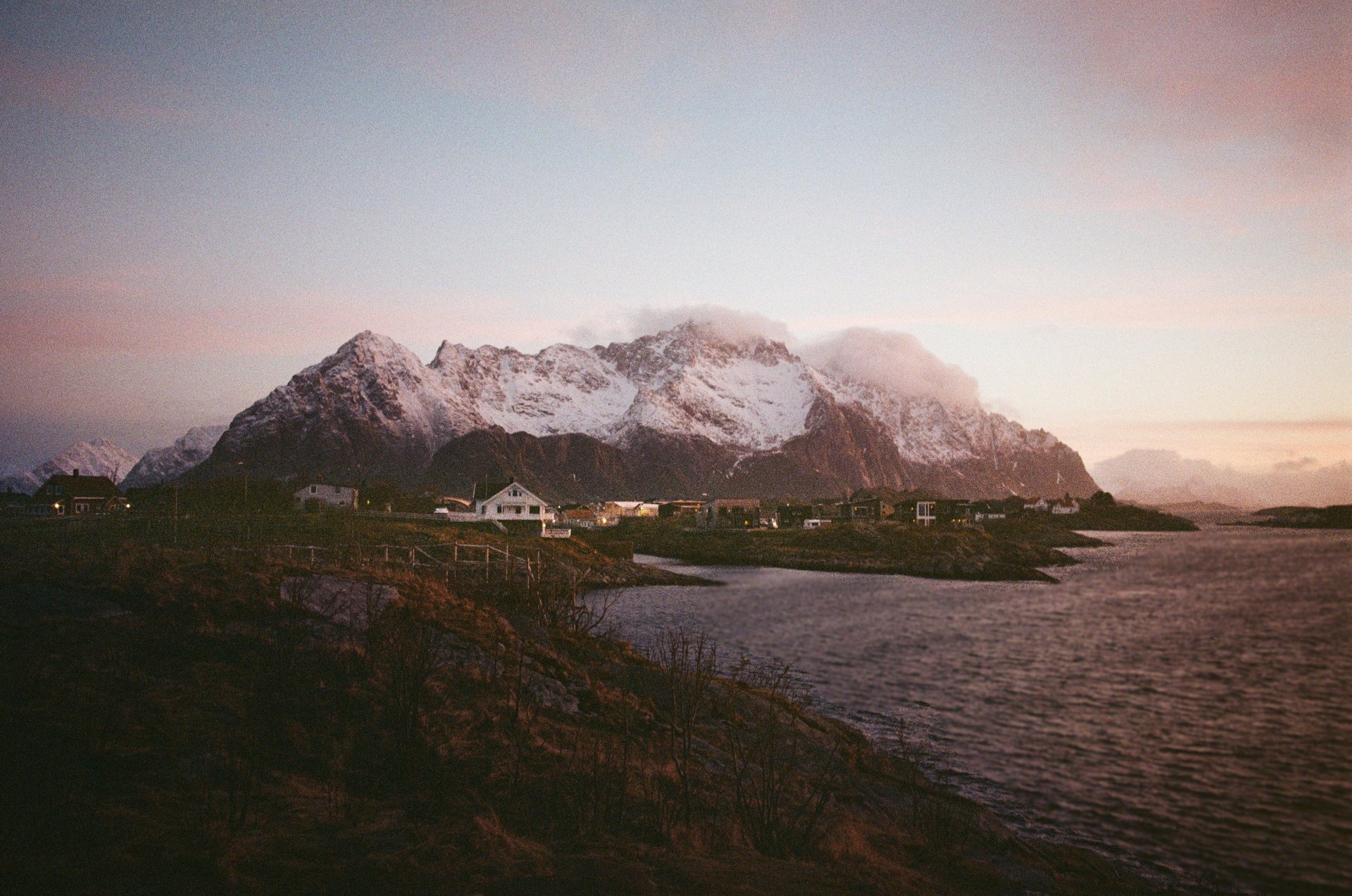
In Motion & In Stills | Interview with Alex van Leeuwen
@vanleeuwen.ajt || www.alexvanleeuwen.co
INTERVIEWS
1/19/2024
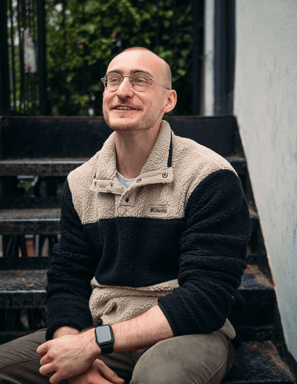

Whether in motion or in still, Alex van Leeuwen one of the few that walks this fine line and captures stunning and inspiring pieces. Alex is a London-based cinematographer and photographer. Raised in Southeast England, Alex started his journey in film photography a bit unconventionally. Having only begun photography about 6-7 years ago, he hones his craft across the world in places such as India, Norway, Greece, and most recently Patagonia.
Alex’s cinematographic portfolio is composed of short films Endocrine and Into The Black. All the while tackling music videos with Oxford Alternative Orchestra and Center for Ballet and the Arts at NYU and commercials for Nottingham Forest Football Club.
His upcoming works involve a horror short called Behind the Screams set to be released in festivals in February, Deadfall scheduled for this coming summer, and a web series called Pillow Talk for UK distribution.
I had the wonderful opportunity to learn more about his honest perspective across mediums and his process as he treks the world.
How did you get into photography and when did you get hooked?
I actually came to photography after I came to film, which is I think the unexpected way around. I think most people would tend to start with photography and then go to film because it's a lot easier.
When I was growing up as a teenager, I loved watching movies. Then it developed to “Oh, let's see if I can create my own stuff”. The first camera I had was the original Black Magic Pocket which didn't take stills. I could only do film because, while that was my interest, I literally also couldn't do photography on that camera. I started making short films, shooting little adverts for people at uni and after a while I thought photography would be fun to do, seeing as I was getting more into the visual arts. So then I sold that black magic then bought a GH4 so I could do stills and video.
I came to photography really quite late whereas film, I've been going for years. I started film photography probably around 2016-2017 when it was thankfully a lot cheaper than it is now. Admittedly, I wasn't going to professional places, I was going to snappy snaps to get stuff developed. It was just cheaper so I could experiment with it more, have a bit more fun with it. Ever since then, I have gotten more into it. I started with 35 mil, then a medium format camera, then upgraded my digital systems. I've always just been running multiple types of camera at once and then just figuring out what’s best for a trip, for a project, for whatever.
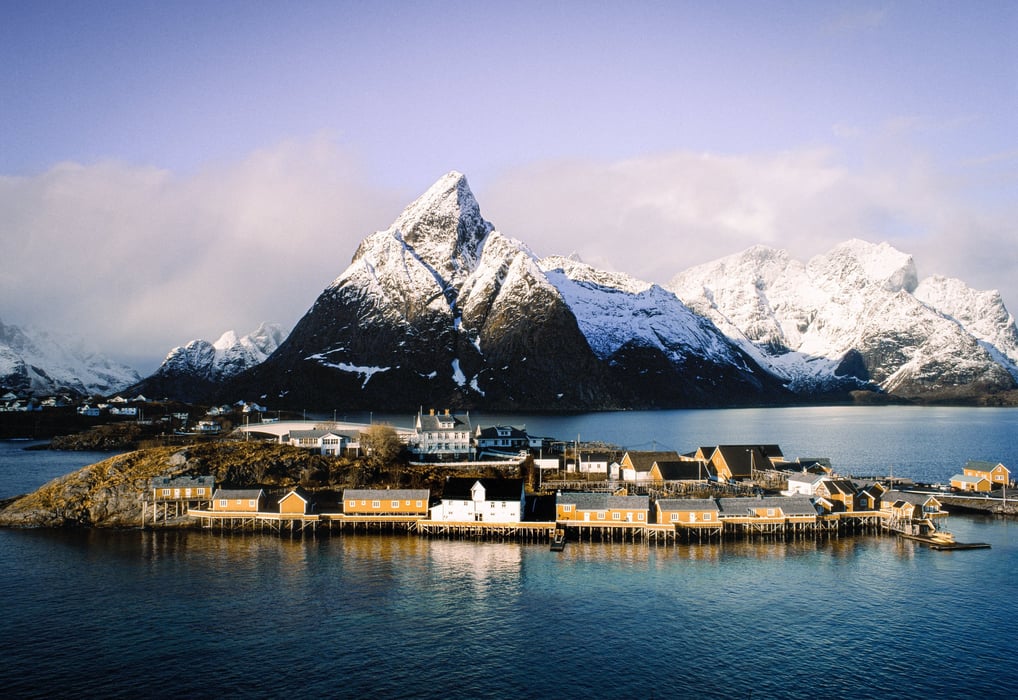

What was the project that you? Would you say you knew you could survive as a cinematographer or photographer? Is there a particular project that you have in mind?
I still grapple with that day by day, week by week haha.
I mean it was a bit of a flippant answer, but it is also kind of true of still grappling with that bit by bit. Where I'm at in my career, I would say I'm still on an upward trajectory. It's not like I've capped out the size of the set yet.
Perhaps it could be a very small shoot where it's something that I feel incredibly comfortable with. It could be that I suddenly have a huge cast, a huge crew, locations that I've never shot, and I feel a little bit out of my depth. I think it's just the more that you do it, you build up a bank of situations and challenges that you know that you've gone through and you have this cookie jar of experiences that you can point to and be like, “Yeah, I was challenged, but I got through it or I still did good work despite XYZ.” And it's taking that proof that you can do stuff with you forwards.
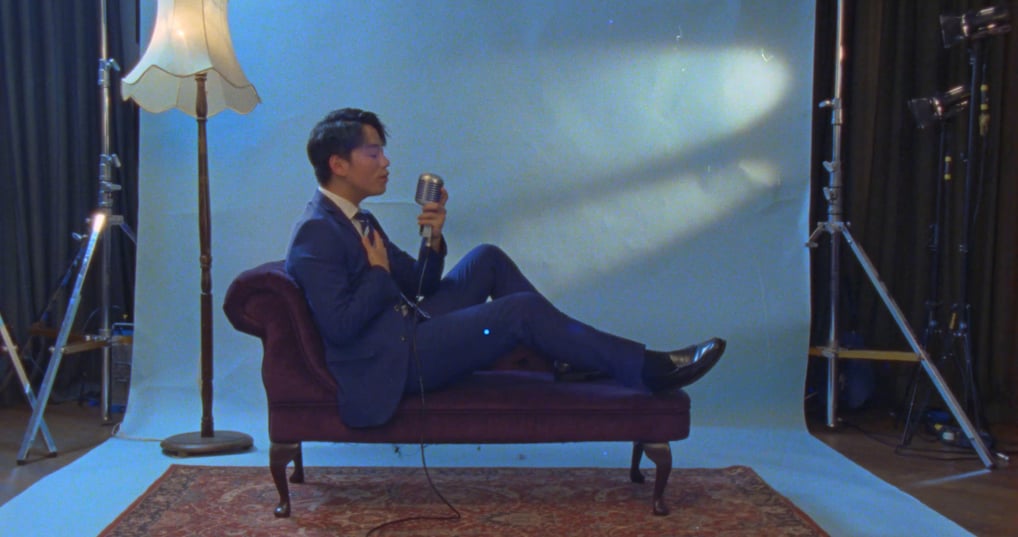

Yeah. I really like that. I find that when pros talk about passion, it's not a passion that they suddenly found. It's a craft that they developed overtime.
Yeah, that's the thing. It does take time and especially with cinematography and film photography, shoot’s aren’t necessarily all that frequent which makes it quite tricky. It's a slower process essentially. As you say, the word is passion, which is very correct. You care about what you're doing, you've got real skin in the game.
Lofoton, Norway - Shot on medium format film
Leave the Door Open - Out of Blue. Music Video
You do short films, commercials, music videos, digital and film photography. The whole 9 yards! and I was curious how the varying shooting styles impact each other. Do you take inspiration from each? Do they clash?
Obviously, they do help each other and I’ll get to that in a second but in a certain way, it kind of muddies the water. If you are only doing photography and you're only having to light a still, that's incredibly different to lighting for motion and lighting a whole set. It's two different skills. I have to remind myself to be completely in tune of what I'm doing to know that the lighting styles will be completely different.
It also comes down to lensing. Photography is very useful for just composing a good frame and good compositional techniques. For example, aspect ratios are going to be completely different like the 35 mil frame is a 3:2 aspect ratio. In cinematography, you can compose anything from 4:3 to 1:1 to 239:1 or whatever. While there is overlap, there are all these subtle differences that you need to think about.
Don’t get me wrong, it definitely helps—coming back to what I was saying before of cinematography projects not being every single minute of every single day. Stills are a way to keep your eye sharp because you can just walk down the street to Sainso’s and if you see a nice sunset or something, you can flip your iPhone and be like, “OK, cool, how would I frame this?” You can build that instinct and impulse without having to be on set with cast, crew, money, bigger cameras, whatever.
I've definitely referenced my own work a lot across different projects. As well, with photography, you tend to be a bit more of a one man band. In cinematography, I rarely color my own footage. There is very much the separation of roles. I will be on set, I will shoot, and then someone else will do the post on it. That's just how it is. The fact that I can do my own post in stills gives me a bit more of an edge in cinematography. I know how to do post and I know what you can do, especially, to a digital image.
I haven't heard that photography tends to keep your eyes sharp. Like you said, practice takes time but it can’t always be happening. To have photography be the supplement to cinematography makes a lot of sense—I didn't really think about it like that before.
And that is totally for me! I don't think I'm ever gonna be the world's best photographer. People will spend their entire career doing that and all the power to them. I mean there is another world where that would be me. But for me, yeah, it's just a supplement. But I think that puts a ceiling on me, which isn't gonna necessarily be there for other people. They can go further with it essentially.
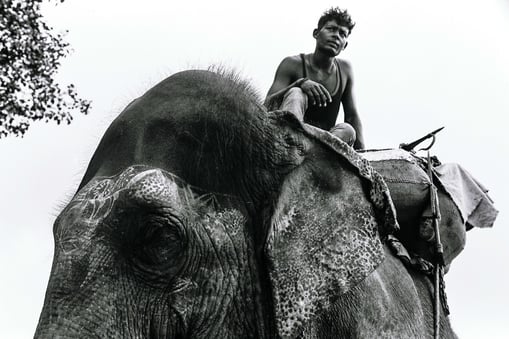

You're based in London. But I've seen your shots in Greece, in Colombia, in Norway, you're all over the place! So in terms of preparing for those shots and when you're on site, what does your approach look like?
I don't think it's one that typically gets asked a lot. I've been very lucky to travel a lot. It has taken most of my bank balance, I'm not going to lie. But I'm very fortunate to have gone to the places that I've been able to go to.
My latest trip to Patagonia was the most that I've ever spent on photography for a trip. I was very careful with how much I could shoot because I knew I was there for several weeks. I had to think it through—right, I know where and what we're doing day by day because I planned the entire trip. I looked at the places that we were going by Googling it and thought what would look cool. I roughly had to plan out ahead of time if I could put a whole roll into this bit. I wanted to be able to cover the entire trip with film but I couldn't just shoot and shoot and shoot. Despite it being incredible landscapes, I have a certain amount of resources and I have to figure out how to best distribute them.
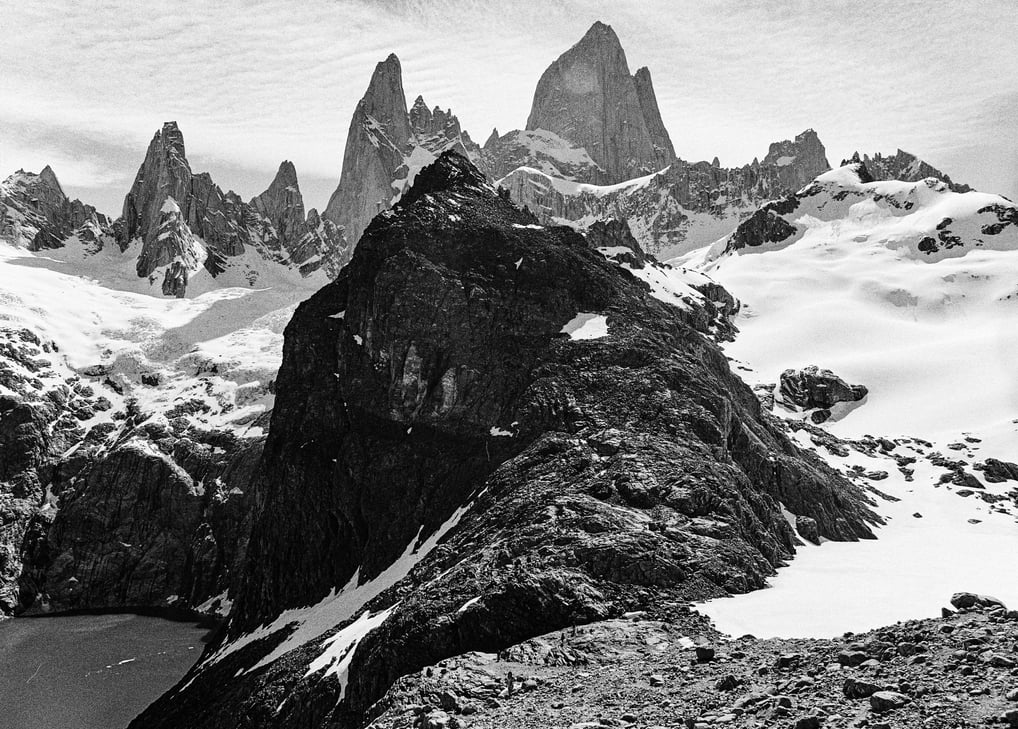


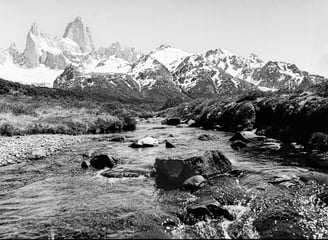
Even on this year’s trips—Norway, Greece, then Patagonia recently—I still take my digital camera despite caring most about film photography. They're all places that I've never been before and so I want to be able to capture memories as well as crafting stuff on film. It worked out quite nicely actually, cause I was in Norway and a couple of rolls got very wet when we got caught in a snowstorm and they were pretty ruined to be honest. Yeah, but I had digital shots from those days so ultimately I've still got the memories.
I very much like being over prepared and over planned. I'd also rather travel with three cameras and have to shoot things in multiple formats and take a little bit more time but know that I will have shots at the end of the trip. Before going, I have to plan the stocks that I'm going to use and roughly when I'm going to use them. All while experimenting and building that base of knowing which stocks I like and asking, “what’s going to work?”
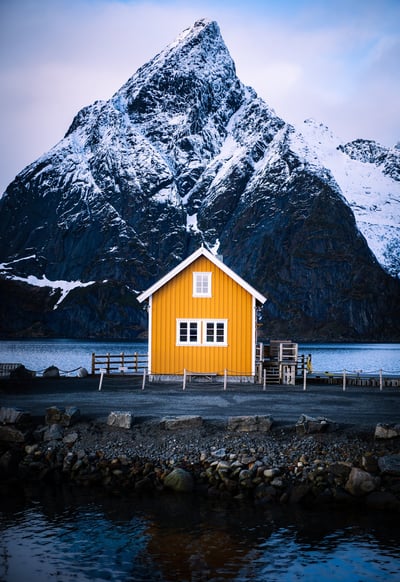

For me, especially with film, I find myself looking through the lens and making sure it looks good and ask myself, “is this something I want to shoot?” Is there a similar process for you when you’re out on the field?
It's exactly what you said. Is this worth it essentially? Patagonia was stunning. Pretty much every direction that you look, it's gorgeous. There's a gorgeous snow capped mountain. There's another one. There's a horse. You could shoot everything and get something that will look pretty cool. But once you look through the viewfinder, is this doing exactly what you want it to do and if not, what can I do to change it? I think this is the crucial piece, how do you make this better?
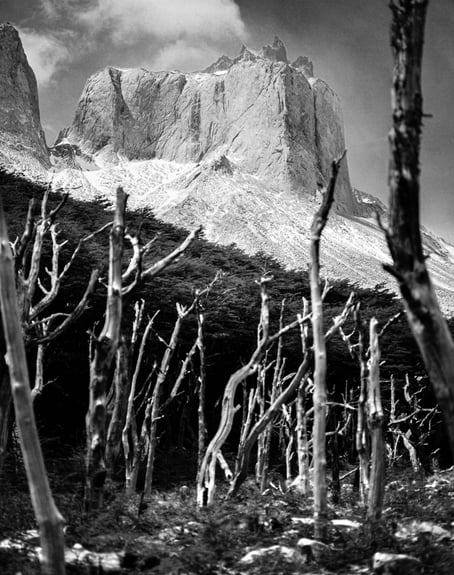

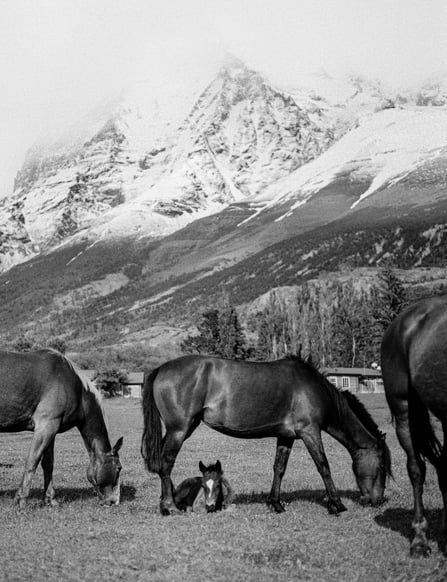

On this trip, pretty much everyday was to go up to the top of a mountain, come back down. If I see a view and it doesn't quite do what I want, will going another 100 meters change the perspective enough to make it the right shot? What are the tweaks that you can do? If you're in a spot, which looks cool but it doesn't quite look right through the camera, that could also be because of the lenses that you have. There could be nothing that I can do for it because I don't have, for example, an 18 mil. If the shot is not doing what I want through film at that point, that's often where I would get the digital out. It's not gonna give me anything that I'm gonna wanna post or send around or get prints done, but it's still worth remembering. Digital becomes more as a backup and for just general coverage.
Do you have a spot that you absolutely want to hit before you put the camera down? Or maybe even a next on the list?
I suppose I'm finding the next dream, really. If you'd asked me a year ago, dream location straight away, I would have said that Norway trip because that's been on my list since before COVID. We literally just went to see the sights and walk around and take photos. It was everything I wanted and it was amazing.
There’s a lot more to do in Patagonia like the South Sandwich Islands and South Georgia. But I don't know if I could say that that was a dream yet. Lots of exploring today still.


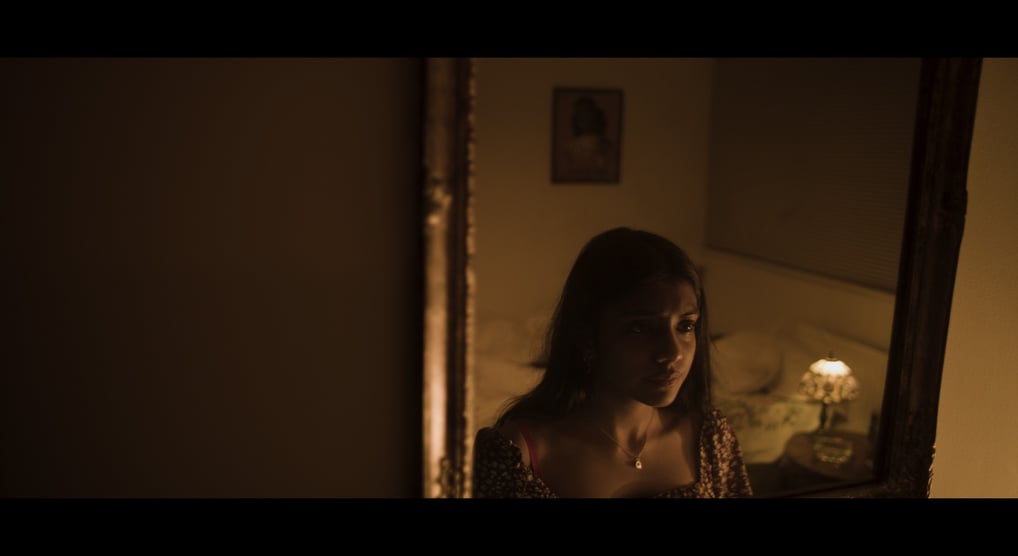

Pillow Talk web series - Cinematic Still
Lofoten, Norway - Shot on 35mm Film
India - Shot on 35mm film
Patagonia - Shot on medium format film
Patagonia - Shot on medium format film
Lofoten, Norway - Shot on digital
Patagonia - Shot on medium format film
Patagonia - Shot on medium format film
What is an aspect of your process or shows that you think is unique to you but generally goes unnoticed by your audience?
Yeah, I thought about this one. I mean, the term ‘audience’ is obviously quite generous. I think for me, it's the lack of people: I don't do a lot of street photography, I'm mainly focused on landscapes. I just don't really like shooting people. Occasionally it can work as something in the foreground but my default is no people. I’m not a very post heavy person but let’s say it's a wide shot and there are a couple of hikers. I'll happily edit them out for a more minimal clean shot. Don't really feature people,that's what I start to notice more and more as I shoot. I’m not sure why but I am quite an introverted, shy person, so maybe that has something to do with it.
What is a personal goal when you started in your photography to where you are now? How has it changed?
Consistency. If I had to say, it would be consistency. When I got my first roll, I had 36 shots, and of those 36 shots, maybe one or two would be good. Although, it’s a bit of a cycle isn’t it? Now, I am at a point where, of my 36 shots, 30 of them are good. So then it becomes about inconsistency. Of those 30, what can I do to make one or two phenomenal?
You’re constantly raising the bar under you, from 1-2 good ones to 30 good ones to 1-2 outstanding ones—Ones that make you stand out amongst the crowd. Constantly honing your craft.
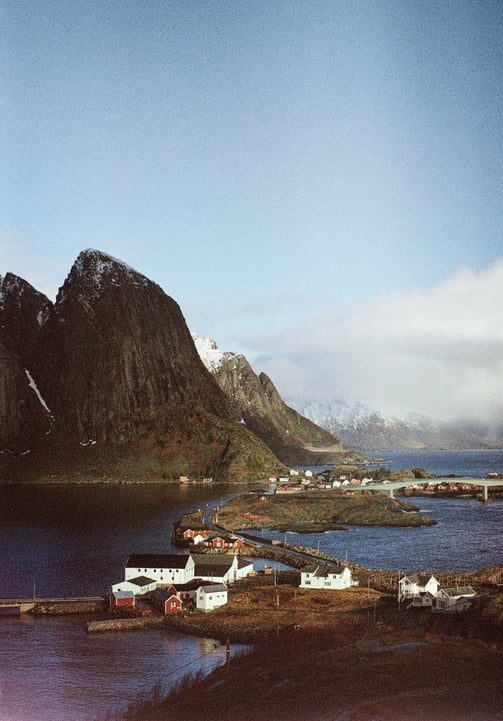

What's a question that you don't think is never asked to photographers?
I thought about this, it's such a good question.
Maybe it's just because it's something that I've thought about on certain longer trips, but do you just ever get tired of shooting?
I think people view photography and especially travel photography as a luxury in a sense. It is an exciting way of life because you get to travel the world, go to exciting places and shoot. I f****** love the fact that I get to do it and I wouldn't change it for the world. But there are certain times on trips where I feel the pressure to create and I think social media definitely doesn't help with that.
I experimented with stories and posts in Greece and I felt I had to put out material either every day or every couple of days because I was going from island to island every other day. There was this pressure that I was putting on myself. I can't think of many good examples because I don't think I've necessarily done it yet, but if it's something very fleeting, like a bird landing on a branch with a perfect background, I would be straight away, “let's get this.” But after a while, do you ever get tired of it? Do you ever feel that it's prohibitive to the moment? I can understand that some people would be like, “no, let's just not see it through a lens. Let's just enjoy that fleeting moment.”
So do other photographers have moments of that? What is their key example of a time where you chose to put down the camera and just keep a moment just for yourself?
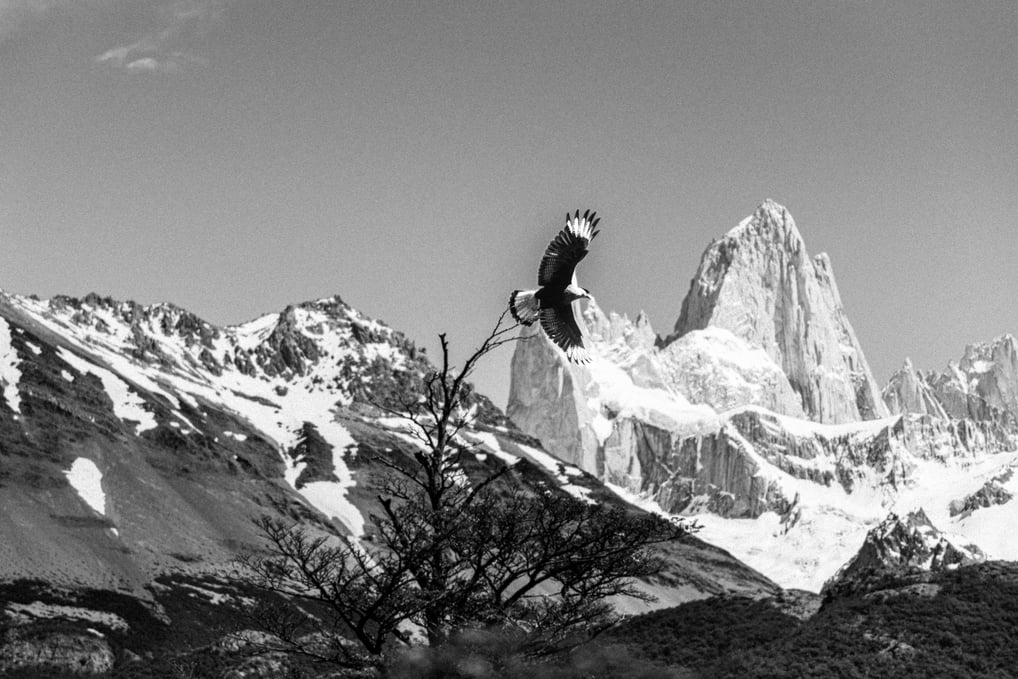

Patagonia - Shot on medium format film
Lofoten, Norway - Shot on 35mm film
